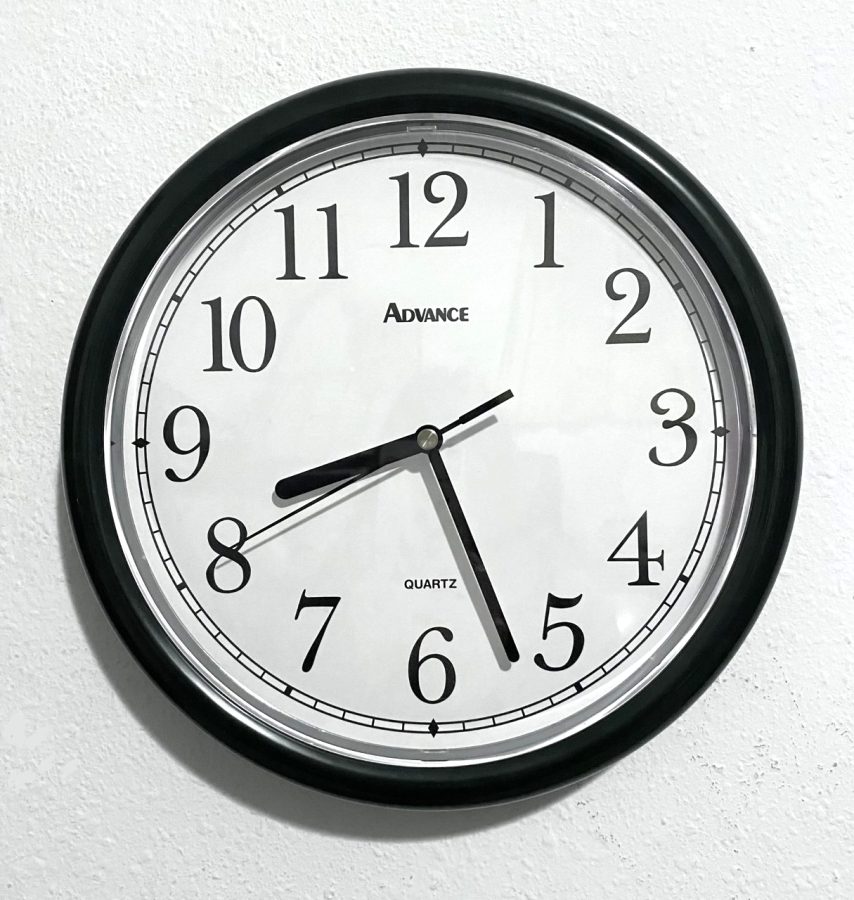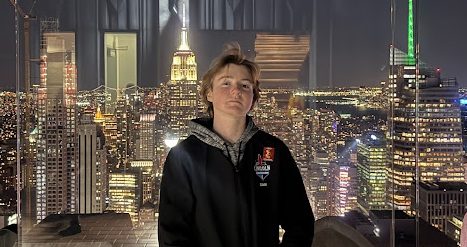The Sunshine Protection Act
If approved by the House of Representatives and signed by Joe Biden the Sunshine Protection Act will take effect in 2023.
March 31, 2022
On March 15 the Senate approved the Sunshine Protection Act, a bill which would make daylight savings time permanent, ending the change to standard time.
Daylight savings is a time of year many Americans loathe. Lasting from March to November, daylight savings time is intended to create as many hours of daylight as possible. During daylight savings time clocks are set forward one hour causing the sun to rise later in the morning and set later in the evening. After daylight savings time ends in November, standard time begins with brighter mornings and darker evenings. The Sunshine Protection Act, recently approved by the U.S. Senate, would end this cycle and make daylight savings time permanent.
This bill, which was passed unanimously, will go into effect in 2023 if signed by president Joe Biden. It is no secret that changing the clocks twice a year is unpopular; the spring forward in particular takes a toll on sleep patterns and productivity throughout the day. Losing an hour of sleep disrupts a person’s circadian rhythm leading to fatigue, tiredness and irritability. It can take days or weeks for the body to adjust to these changes and is especially difficult for young children.
Aside from sleep loss, the time switch also causes problems in the colder months. Seasonal affective disorder or SAD is a fairly common type of depression which is triggered by changes in season. During the fall and into the winter, the decrease in sunlight disrupts mood and causes anxiety and depression. People who suffer from SAD may feel tired, unmotivated and lacking in concentration or energy because of lower exposure to the sun. In South Dakota, during winter the sun usually sets at around 5 p.m. This means that almost all daylight is gone by the time most people get home from work. These early sunsets can make people feel tired and cause them to stay home in the evenings even though there are many hours left in the day. Some argue that later sunsets are better for the economy as they encourage people to leave the house more often. The brighter evenings may also reduce crime year-round.
Standard time does, however, have its advantages. The lighter mornings and dark evenings make it easier to wake up and go to sleep in a timely manner. During daylight savings time people may find it harder to wake up while it is still dark outside and fall asleep while it is still light outside. Having to drive to school or work in the dark each morning is also a disadvantage. Some countries such as Japan, China and India already choose not to participate in daylight savings time. Arizona and Hawaii also choose not to observe it; however, it is still unclear whether or not this bill will be signed into law as both sides have pros and cons.









